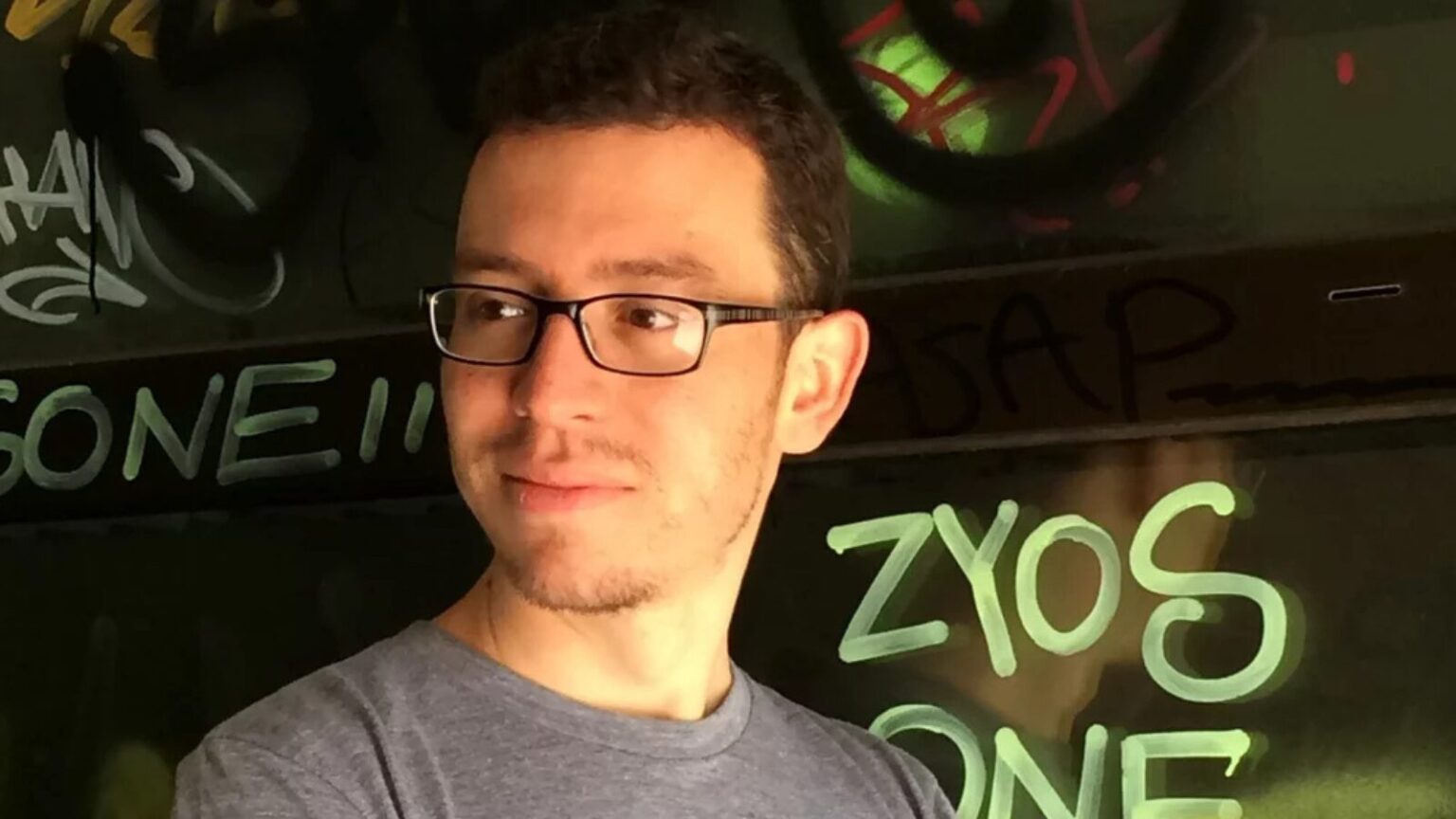Louis von Ahn Interview with EFL Magazine
Who is Luis von Ahn and what does he believe?
I believe everyone should have access to high-quality education. As for who I am, I feel self-conscious in answering this question so I’m just pasting the mini-bio we use for conferences. : )
Luis von Ahn, Duolingo’s co-founder and CEO, is an entrepreneur and computer science professor at Carnegie Mellon University. He is known for inventing CAPTCHAs, receiving a MacArthur “Genius” grant, giving popular TED talks and selling 2 companies to Google in his 20s.
Luis has been named one of the 10 Most Brilliant Scientists by Popular Science Magazine, one of the 50 Best Brains in Science by Discover, one of the Top Young Innovators Under 35 by MIT Technology Review, and one of the 100 Most Innovative People in Business by FastCompany Magazine.
Among other accolades, Luis has been honored by President Obama with a Presidential Early Career Award and was selected to personally present Duolingo to the president at the White House’s first Demo Day last August.
In doing my research for this interview I read your impressive profile and discovered that you, along with others, invented CAPTCHA. Can you give me some background on your previous projects?
Before Duolingo, I was working on projects that got humans to help solve problems too complex for computers. For example, I noticed that search engines were bad at indexing images without captions. So I created a game that randomly showed two players an image — they would win if they both used the same words to describe it. In this way, thousands of people collectively helped tag pictures with meaningful captions. Google acquired this in 2005 and called it the Google Image Labeler.
A second project was reCAPTCHA. Captchas had been reducing internet spam, but I started to feel guilty — humanity was wasting around 500,000 hours per day solving these annoying things. At that time, computers were being used to scan books to make them digitally readable, but weren’t really good at this, especially with older volumes.
Selling reCAPTCHA to Google
So the way reCAPTCHA worked was that each time you entered a captcha to prove you weren’t a spam bot, you’d simultaneously be digitizing books one word at a time. At its peak, 100 million words were being digitized or around two and a half million books a year. I sold reCAPTCHA to Google in 2009 — more recently, it’s been used to decode house numbers on Google Maps’ Street View.
I’m also a computer science professor at Carnegie Mellon, currently on leave. After selling 2 companies to Google, I decided to work on something I’ve always deeply cared about: improving education and making it universally accessible. Duolingo is now my only priority.
What do you mean by ‘Human Computation’?
Human computation is having humans and computers work together to solve large scale problems that neither can solve alone.
Tell me a little bit about the genesis of Duolingo? Specifically, how you came up with the idea? How you spotted a need? Tell me a little bit too about your experience of the funding process?
I grew up in Guatemala, a very poor country in which the vast majority of the population doesn’t have access to good education. While most people talk about how education can reduce the wage gap between the rich and the poor, I noticed the opposite was often the case: people with resources can buy an excellent education for their children while the poor barely learn how to read and write, thereby widening the gap.
I wanted to work on something that could give everyone equal access to high-quality education. Because education is a vast field, Severin Hacker and I (Severin was my PhD student at the time) decided to focus on language education because we knew that learning a language could help people double their income potential.
There is a huge need
There is a huge need for accessible, effective language education: the vast majority of the 1.2 billion people learning a foreign language today happen to be i) learning English, ii) of low socio-economic conditions; iii) and doing so in order to access better jobs or a better education.
Ironically, learning a language is extremely expensive, even through the software available at the time. Not only is learning a language extremely expensive, but many people studying languages in school today graduate with very limited knowledge of that language. So, we decided to make Duolingo, a way for anyone to obtain the highest quality of language education, for free.
We’ve raised funds from Union Square Ventures (which also invested in Tumblr and Twitter), New Enterprise Associates, Kleiner Perkins Caufield & Byers, and most recently, a Series D from Google Capital. We’ve raised US $83.3 million in total.
In a crowded app market, how do you account for Duolingo’s success?
There are three things that have made Duolingo particularly successful.
It’s 100% free.
No in-app purchases, no paid premium version — completely free.
It’s fun.
Duolingo was built to feel like a game: users compete with friends, work to maintain learning streaks, gain experience points to level up, and earn virtual currency to spend on bonus items. This gets people to learn without feeling like they’re studying, or to replace brainless games with something that will really help their future.
It also helps that lessons are “bite-sized” and manageable, so they can be taken on the go in 5 minutes at a time and can fit anyone’s schedule.
Its curriculum is science-based and very effective.
Everything on Duolingo has been derived from analyzing how millions of people learn at a time. It’s the first time in history that this is possible! An independent study conducted by the City University of New York has shown that 34 hours on Duolingo are equivalent to a university semester of language classes.
These three things helped us grow quickly through word of mouth and be recognized by Apple as iPhone App of the Year as well as by Google as Best of the Best for Android 2 years in a row, which in turn generated more growth!
In the beginning
At the very beginning, it helped that we launched a simple website where people could sign up to be invited to a private beta version with a very clear message: unlike other language-learning software that costs hundreds of dollars, Duolingo would be 100% free. At around that time, I also gave a TED talk about Duolingo’s vision which was viewed by over a million people. This gave us an initial surge, getting 300,000 people to sign up for our private beta.
Early on, we made a conscious decision to spend all our funding on improving the product constantly rather than on paid marketing. We’ve grown to around 110 million users almost entirely through word of mouth, and I’m proud to say we’ve still never spent any money on advertising. This is significant given other language learning companies spend billions a year on paid advertising.
Duolingo for schools
Importantly, about a year ago, we launched Duolingo for Schools, a tool to help teachers use Duolingo with their students in class. Over 200,000 teachers have signed up so far and we’re conducting (free) training and certification sessions in many countries including many U.S. districts.
Please explain your business model of providing lessons for free? Also, what are language learners willing to pay for, in your opinion?
 Along with the main Duolingo app which people use to learn languages, we developed a profitable product that complemented our mission: affordable English language certification.
Along with the main Duolingo app which people use to learn languages, we developed a profitable product that complemented our mission: affordable English language certification.
Since we released Duolingo, thousands of users had written to us saying they were thankful for the opportunity to learn English for free, but still had to prove that they actually speak English by taking a standardized test such as the TOEFL or IELTS.
The tests are unfortunately extremely expensive (about $200-$250, or the equivalent of a month’s salary in many developing countries) and require commuting to large distances (to testing centers), as well as waiting for weeks or months for results.
We launched the Duolingo Test Center to give everyone the opportunity to certify their language proficiency from anywhere, in 20 minutes and for only US$20. The Duolingo English Test is available on the web as well as Android, and iOS phones, and is remotely proctored to prevent cheating — we record the test taking experience by accessing the device’s camera, microphone and screen during the test which human proctors then assess.
It is already being accepted by prestigious universities and companies around the world, including some schools of Harvard University, Carnegie Mellon University, the Max Planck Institute in Germany, and Uber, which launched the “UberEnglish” view in a few countries abroad to enable people to order English-speaking Ubers.
Does Duolingo work? Convince me.
Yes! An independent study has shown that 34 hours of Duolingo are equivalent to one semester of college language instruction. We also receive hundreds of messages each week from users detailing how learning a language with Duolingo has enabled them to travel/ get a new job/ feel more confident at school, etc. We’d be happy to share those.
The best way to know for sure would be for you to try it and see for yourself : ). Our teaching method follows 3 core principles. Learning should be:
- Active, not passive. Duolingo’s students learn by doing. Daydreaming in a Duolingo lesson is impossible because you have to provide the right answer to progress.
- Personalized. With every exercise a student answers, we receive more information about how they’re learning. For example, we can tell if every time you see the word “pineapple”, you take an extra 800 milliseconds to answer. We use all of this information (from more than 7 billion exercises per month) to generate unique lessons adapted to each user.
- Fun. One of the biggest barriers to learning is staying motivated, so Duolingo is designed to feel like a game. Students must pass levels to unlock new skills, can compete with friends, and can even earn virtual currency to “buy” rewards. We’ve found students pay more attention and try harder when they’re playing games.
Does it improve speaking skills?
Yes it does — we teach pronunciation by allowing users to listen to each new word that is taught, have them pronounce words as an exercise using the computer/ mobile microphone, and learn new vocabulary and sentence structures all of which are important for learning how to speak! However, there’s still nothing quite like having a conversation with a native speaker just yet. 🙂
Critics of Duolingo cite a number of drawbacks to the app.
-
It’s based on outdated methods of teaching i.e. drilling and translation
-
Some of the translations are inaccurate and some of the sentences are strange
-
Language is taught out of context and the sentences are too short
These criticisms of Duolingo are not entirely unfounded. For example, I definitely agree with the idea we could add more cultural context to our teaching. We initially planned for Duolingo to be a tool that could teach languages without any cultural context, but we’ve come to realize that may not have been the best idea. So, we’re working on ways to incorporate more context into our lessons.
On the other hand, a number of criticisms don’t hold up against the data. When it comes to inaccuracies in translation, for example, on average, you’ll encounter fewer than 1 mistake per 1,000 exercises you do. Usually, the most common “mistake” is actually that Duolingo doesn’t accept a different way of saying the same thing.
We’re totally honest
At Duolingo we’re lucky to have a culture of being totally honest about our strengths and weaknesses which is deeply valuable if you’re trying to continually improve your product. We’re also highly data-driven and have a team of PhDs who are dedicated to understanding the data and running experiments on the most effective ways to teach. We take great pains to ensure that the decisions we make are based on evidence. This way, bit by bit, Duolingo has been steadily improving its teaching methods.
On the whole, I’m pretty happy that the data shows that even with its drawbacks, Duolingo is effective (see the independent study mentioned above), but we have big plans for becoming even more so, and we’ll continue improving on the product until we run out of energy : ).
On your site you say that “We believe everyone should have access to education of the highest quality – for free.” How does this fit into your view of where language education is going?
It’s a future we’re working hard to create. Modern technology allows us to do some truly incredible things. For the first time in history, we can improve teaching methods by observing how millions of people learn on a granular level. There are a number of theories on the best ways to teach a language, but they’re often conflicting. We now have the ability to reliably test these theories on a large scale to get a more accurate read on what works and what doesn’t.
We’ve met incredible language teachers in public high schools delivering high quality language education for free, but they simply can’t reach everyone trying to learn a language, particularly adults. With exponentially increasing access to smartphones, however, we’ll be able to reach more and more of those billions of people at relatively low cost. For the majority of such people, learning a new language (generally English) is the key to unlocking a better life, but if the had been born only a few years ago, they would have lacked the means to do so.
What’s the future for Duolingo?
In the short term, we’re working on a neat way to help you become better at conversations in other languages. I can’t say too much, but we’re super excited about it.
In the longer term, we want to provide just about everyone with all types of education of the highest standard. We started with languages, but that’s only the beginning for us. We think we can help by creating intelligent apps that teachers and students can use together in the classroom for the most important subjects such as reading and writing, math, physics etc.
I’ve heard that Bill Gates is a user, what kind of feedback has he given you?
We haven’t spoken to Bill Gates about this, though I did have the honor of meeting him a couple of years ago.
Finally, you’ve met President Obama at The White House, tell me a little about that?
Duolingo was invited to the White House’s first Demo Day last August and selected as one of the few startups that actually presented to the president himself. It was a big honor, and he said he’d wished he’d had a tool like Duolingo when he was in school.
That wasn’t the first time I met President Obama — I had the honor of receiving a Presidential Early Career Award from him, though I doubt he remembers me! : )
This interview with Louis von Ahn was first published in on the 25th of March, 2016








3 Responses
Eric H. Roth
Thank you for sharing this illuminating and inspiring interview. The success of Duolingo shows the huge hungry for autotelic language learning apps. I look forward to seeing the release of further advanced versions with increasing emphasis on conversation skills.
29/03/2016
Arkady Zilberman
Duolingo is the most popular website for learning a foreign language. It has a subtitle: learn a foreign language for free. Forever. If your goal is to become fluent in a foreign language in a year or two you might be discouraged by “learning forever.” The achievements of Luis von Ahn are well-known and they don’t require additional praise. I would like to remind the statement about Duolingo that Luis made in 2014: "You can learn to the point where you can navigate and have relatively simple conversations but you probably won't be writing any great works of literature." I would add that you won’t be fluent in a language because Duolingo was designed to acquire the ability to say a few simple sentences and not for communication skills in a foreign language. Duolingo is easy to use and remember words in a foreign language as translations into the native language. However, if your purpose is to speak fluent English, Duolingo actually may harm you because it reinforces subconscious cross-translation into you mother tongue - the main barrier in acquiring a foreign language. Luis is a great visionary and I hope that the next great change to Duolingo will come with a new built-in application that will use subconscious active training of English skills instead of current passive learning with obsolete flash cards and translation tools.
30/03/2016
Bill Nye
Spare me the propoganda of an app for God sake! It's an app for ESL not an app to help someone get through medical school!
28/04/2016